#sense and sensibility and sea monsters
Explore tagged Tumblr posts
Text
Favorite niche book genre
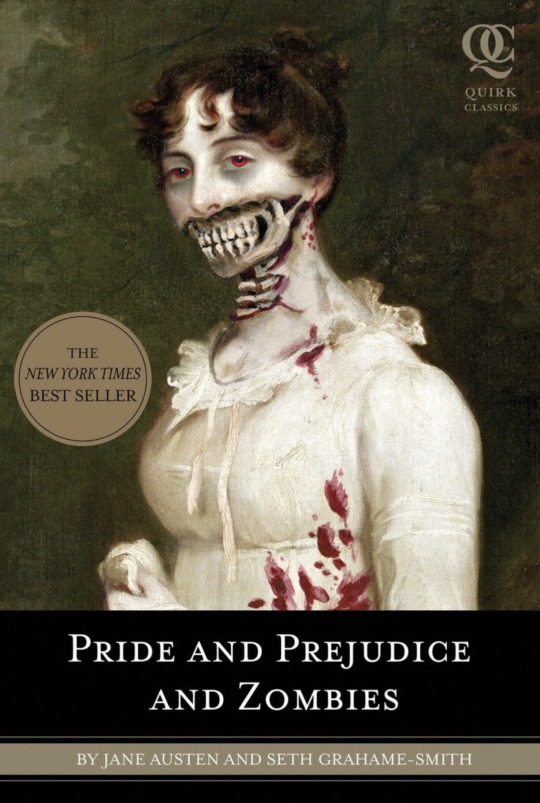
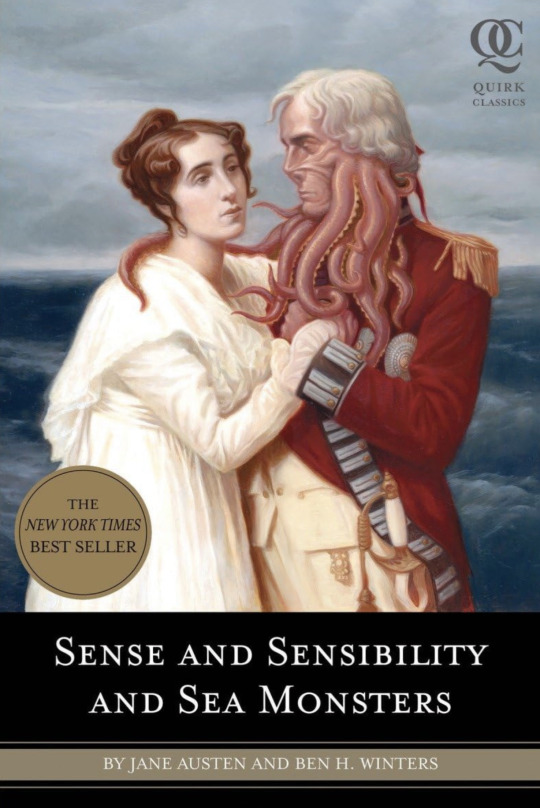
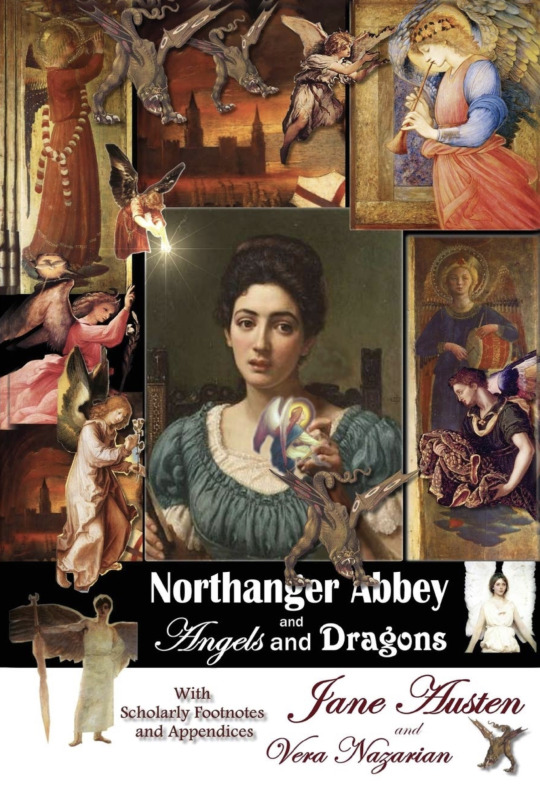
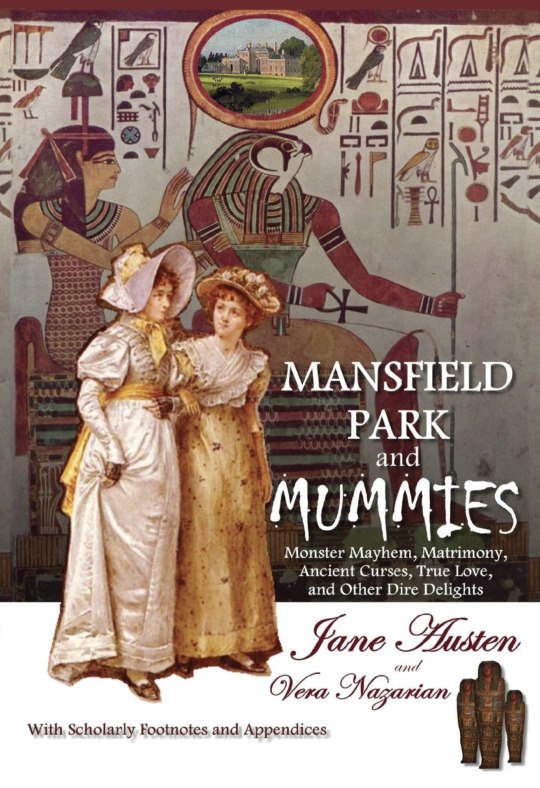
#these 4 are the ones than mainly caught my eye#but there are hundreds of Austen retellings like that#specially mixing p&p and vampires#I saw one where mr Darcy turned into a platypus#one where Elizabeth Bennet and Catherine Morland were cousins and#they found vampires or smth#one set in a post-canon p&p universe where Elizabeth fights aliens?#this is basically fanfiction it’s so fun#idk if they’re any good I haven’t read them yet I want to#jane austen#sense and sensibility#pride and prejudice#northanger abbey#mansfield park#retelling#pride and prejudice and zombies#sense and sensibility and sea monsters#Northanger abbey and angels and dragons#Mansfield Park and mummies
249 notes
·
View notes
Text

The things you find in the book sections of charity shops... is this a masterpiece or a monstrosity? Not sure yet but I'm quite excited, if slightly terrified, to find out!!
#sense and sensibility and sea monsters#jane austen#sense and sensibility#only £1.80 what a bargain#the old lady serving me was very confused#i've read pride and prejudice and zombies but this one sounds even more messed up#my collection#cora try walking into a charity shop without leaving with a book challenge#failed once again!!!
20 notes
·
View notes
Note
Okay while we are on it. What’s about sense/sensibility and sea monsters. Have you read it? I have looked into the gratis preview and it look so bonkers! In a good way?
I have read it. I didn't like it as much as P&P&Z, which is by a different author. The plot is pretty wild and Colonel Brandon is not only old, he's a half-octopus mutant. As a spoiler, I don't like that Lucy turns out to be a sea witch, I think it's important that Edward's engagement was formed voluntarily.
Anyone else have thoughts? It's been a while since I read it personally.
#sense and sensibility and sea monsters#JAFF#jane austen fan fiction#question response#jane austen#sense and sensibility
11 notes
·
View notes
Text
Эпичный момент.

Ещё один.

Тот самый, пробуждение которого ждал культ лысых.

Спасение.

О мистере Палмере ещё раз.

Мило.

Приоритеты.

Интересная тема.
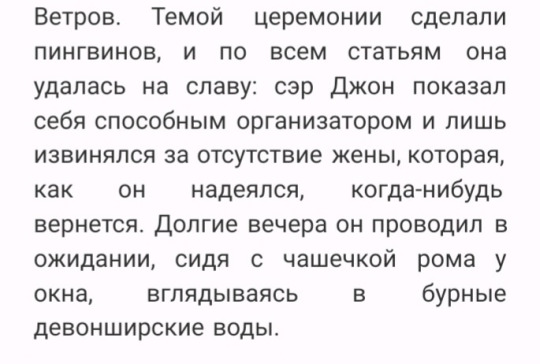
Этот момент не очень нравится. Будто семья продавливает девушку.

Тентакли?

Финал и вопросы.



1 note
·
View note
Text

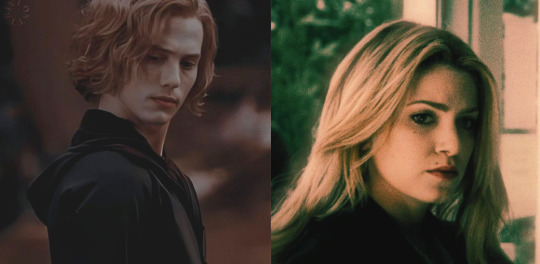
Consider this a part 2 of Can't Escape the Nightmares cuz I keep getting ideas for this story 🙃
Pairing(s): Jasper Hale x Human!Reader, platonic!Rosalie Hale x Human!Reader
Warnings: mentions of past assault, mentions of past rape, noncon themes discussed, reader is jasper's mate, platonic!rosaliexreader, human!reader, nightmares, trauma, ptsd, dark content, mention of blood, brief mention of murder/death, hurt&comfort, ft the cullen fam, yes i'd like to sign up to be protected by rosalie ✋🏼, and my depressive ass could certainly use a man like jasper lol
Words: 1253
Summary: It was hard for you to be outside. Not after what happened. And with the Cullen house surrounded by a sea of towering trees. . . It was difficult for you to even step onto the wrap around porch. Everything about the outside reminded you of that day in the woods.

They'd smelled your blood from miles away, noticing that it grew closer and closer until Rosalie was upon the doorstep with you dangling in her arms. Your eyes were open, though void of expression; merely staring at these near angelic looking family with gold hued eyes.
Your injuries were nothing major, yet your blood yanked at their olfactory senses.
And Jasper was helpless when, eyes being engulfed by jet black.
The expression in Rosalie's expression though kept him at bay.
"Get him out of here. He can't handle it." Rosalie snaps, her hold on you growing tighter.
Intently watching Jasper's every move, you see the rigidity of his frame and the back and forth sawing motion of his jaw. He must have ground his teeth to oblivion, at least that's what you thought.
Never imagining the true inner turmoil that was engulfing his every sensibility. Jasper's perpetually cold skin suddenly felt like it was on fire. A monster scratched at his mental door. A monster that wanted to taste every inch of your skin before sinking his straight, razor teeth into your delicate paper-like flesh.
"Jazz, snap out of it." Edward motions for Emmett to keep him back. His hiss is low as not to scare you further. Knowing all the horrors you had just gone through
The fog that reduced his head to a warm flush lifts enough for him to finally notice the state you were in.
Large splotches of red and rich purple are smattered across the entirety of your arms and legs, with a giant one blooming on your jaw. His stomach recoils at your lack of clothes. Connecting the visual clues together to realize what had happened and why Rosalie was dyed in a mess of different blood types that didn't belong to you.
You were already broken.
Suddenly that monster was silent, it too watching with baited breath as Rosalie carries you up the staircase and to Carlisle's office. The older blonde vampire quick and on her heels.
Jasper's monster seemed to take that moment to decide something that was against its very nature: it would protect you, guard you and keep you.
There will always be that hunger in him for your blood. But no longer would he be ruled by it.
When exhaustion finally swept over you, Jasper peeks his head into Carlisle's office. Rosalie sat on the floor in front of the couch you were asleep on.
She's in front of him in a flash, barring him entrance with a fatal snarl.
He dare not mess with this gold mama bear.

It was hard for you to be outside. Not after what happened. And with the Cullen house surrounded by a sea of towering trees. . . It was difficult for you to even step onto the wrap around porch. Everything about the outside reminded you of-
"They can't hurt you again." Edward mentions behind you as you stood in the front door, hand quaking above the doorknob.
That didn't relive the nausea in your stomach. Your eyes shut tight and Edward winces when your mind immediately goes to the day that you were assaulted.
When you catch yourself you immediately apologize and take a step back. "S-sorry. I didn't mean to-"
"No, don't apologize." He's firm on this and finally you turn around. Surprisingly, the Cullens had understood the trauma you had gone through more than you would have thought. Every one of them had gone through a horrifying event much like your own. Rosalie's was almost identical to your's and possibly the very reason why she had saved you and killed those monsters who abducted you. And has protected you since then. She reminded you of a mother hen.
When Jasper first showed interest in you, Rosalie actually became aggressive toward him; telling him that you weren't ready for such a relationship. That you needed to heal more.
Jasper never stepped over any boundaries. He never came close to it. He waited. Helped you whenever you asked for it. Approached you tentatively until you told him that he didn't have to tiptoe around you. Many months were required before this. In the meantime you allowed Rosalie (and to a smaller extent, Alice and Esme) to tend to you and repair your fragmented body.
The only time he used his power on you without your permission was when you were asleep and suffering from your all too frequent nightmares.
"If you want, I can go outside with you. Maybe we can take a short walk around the house." He softly offers when you glance back at the door.
They were all so kind to you, never asking when you'd be ready to leave their house. It never came up. In fact you had the suspicion that Rosalie would insist on you living with them from now on. An unofficial part of the Cullen family.
You knew their secret. Living there, it didn't take long to discover that they were not human. From their perfect pale skin, to their golden eyes, there was something different about them. The way Edward was able to anticipate your every needs or how even being in the same room with Jasper had your anxiety simmering down. Even Alice displayed odd signs that you would have normally passed off as some kind of mental illness when she'd stare off into the distance. You now knew it was her getting a glimpse of the future.
"Thank you, but maybe today isn't the day. . ." You force your trembling lips to quirk up into a tentative smile though it could not fool Edward who could hear the inner turmoil in your mind. He never pushed.
He nods and lets you amble back upstairs to safety. The Cullens required no sleep so their bedrooms were essentially just for decoration. Rosalie and Emmett happily gave up their room so that you could seek out privacy when you were too overstimulated to be in their company. They even bought a tv just to put in the room for you. You didn't know what you did in your life to deserve them.
But before you go to your own designated room, you stop in front of Jasper's with a tentative hand raised to knock on his door. You were always nervous when asking him to hang out with you while Rosalie was gone. You'd heard Rosalie whisper to Emmett one night about you being Jasper's 'mate'. She must have thought you were fast asleep but you heard them discuss the possibility of a relationship between you and the other blonde Hale.
It made you self conscious now when you were near him. You'd known that he was. . . attracted to you.
You jump when his bedroom door opens to reveal his figure. "H-Hi."
His smile is always so sweet and even shy. "Hello."
"Um," Your fingers twist the hem of your shirt anxiously. " well, Rosalie is gone. I was wondering if you wanted to hang out for a little bit. . . Esme bought me a new dvd. We can watch it?"
Adoring the way his eyes crinkle when his smile broadens, you take a step back to allow Jasper to exit his room and close the door behind him. "Lead the way, ma'am." Your chest squeezes when that southern drawl of his comes out.
Trusting anyone again wasn't an easy journey. But being cradled by the Cullen family was bound to heal some wounds.
And perhaps water the seed of love that had been planted in your heart by Jasper.
#reader insert#reader insert fanfiction#tw dark content#tw dark themes#twilight fandom#twilight fanfiction#the twilight saga#twilight saga#twilight#jasper hale fanfiction#jasper hale fanfic#jasper whitlock fanfiction#jasper whitlock#jasper hale#rosalie hale#rosalie cullen#jasper hale x reader#jasper cullen x reader#jasper whitlock x reader#jasper cullen fanfiction#jasper hale x fanfiction
630 notes
·
View notes
Text
Night Watch 2024 Letter - Breakdown and Personal Thoughts
my personal thoughts and initial analysis of ithaqua's letter!
these are mostly just my own opinions and will bounce off some pre-existing ideas i have, so feel free to let me know if you'd like anything clarified or if you want to discuss your own thoughts!
readmore because it's very long:
A Stack of Unsent Letters to Home (2024) (It's speculated that this stack of 18th-century letters was frequently examined. The papers are worn and damaged to varying degrees. Below are excerpts from the organized and restored legible text.)
The 18th century line really throws me off. IDV's main events and manor games take place in the 1880s-1910s, and this detail states that the letters were written before 1800, which wouldn't make much sense if we assume both Ithaqua and Lagertha lived at the time of the manor games. It's also not a mistranslated '1800s' because the original Chinese version also states '18th century'.
Avoiding rambling as best as I can there are two main ideas this brings to mind:
The plateau of Leng is considered old itself, with practices that are possibly centuries behind 'modern' practice for the time. Lagertha and the Vilulf clan seem to be based off of vikings which were also figments of a much earlier past. This could be an effort to ease the time gap by setting the story earlier.
However, I still severely doubt either Ithaqua or Lagertha have lived all the way from the 1700s to the 1900s. As aforementioned, I have no concrete proof, but it's just not sensible for either of them to be supernatural beings themselves, given the thematic importance of Night Watch being a human disguised as a monster. If we assume the 18th century thing is true, then they died. If we assume it's not true, then Ithaqua is alive and Lagertha's fate is unknown.
EDIT: I started this analysis before Brynhildr Vilfulf dropped. Her weibo lore seems to imply Ithaqua's story did in fact take place 200 years ago, but I will leave this part up because I'm petty and the detail bothers me for reasons I will expand on in a later post.
[I] The star cluster of Vilulf will fall into the fourth house, symbolizing the law of "disintegration." This powerful force compels the life chart to discard the old and embrace the new—not in a gentle manner like a snake shedding its skin, but rather with the sudden breaking of a dragon bone, causing thousands of tons of iron and wood to sink to the depths of the sea. —The prophecy of the star atlas foretells suffering. My brave Ragnar, how have you fared? You were still young when I left Medan, yet I believed you would ultimately choose to follow the old man and navigate the oceans. I have no idea where to send this letter, but I trust that the power of the universe will carry my thoughts to you as I write under the moon.
I will have to check the original chinese text to see if there's any nuance I missed for many of these terms TOT. I think I may make a separate post looking into these specific terms, but for now I will look at the general idea.
Lagertha seems to be describing the movements of a fictional star cluster associated with the Vilulf clan, fortelling of a sudden, possibly dangerous event that would change the trajectory of her life (most likely foreshadowing meeting Eta/Ithaqua).
As stated on the wiki, Ragnar and Lagertha are based off of Viking folk figures who were married. But in this letter, she seems to talk about him more as a younger relative than a spouse (I'm going off the wiki's old note on the chinese translation but I will come back to confirm/deny). The 'old man' could be another relative and also possibly a clan leader.
I hope that when you gaze up at it, your spirit will be stirred to heed my guidance: Ragnar, do not attempt to conquer lands with ships. Our era has passed. Ragnar, gather our people and leave the Indian Ocean. Head north to Scandinavia, where you can rest and recuperate for at least a century.
The Vilulf clan is presumably Scandinavian. Lagertha in Viking legend is also from Norway. The Vilulf clan isn't explicitly stated to be Vikings, but they seem a bit inspired by general writing stereotypes associated with them.
They also engaged in some sort of "conquering".
Ragnar, I do not wish for you to abandon your beliefs, but please understand that the rationality and morality of humanity form the true foundation of a just society. A well-ordered world is the only environment where true freedom can thrive, and it is this discipline that will illuminate the world with the light of civilization.
Lagertha has clear and firm ideas about morality and order. She believes that people require a sense of structure and logic to adhere to, and sees civilization in a positive light. This is a detail I will come back to later with more context.*
Anyways, her ideas constrast Ithaqua's philosophy of giving up civility and humanity in general - he believes these things to be unhelpful, false, harmful. Ithaqua most closely associates them with the society in Leng, and the society that Nathaniel represented. But we now see that Lagertha was also a very order and structure oriented person, just in a different manner.
[II] Back then, the old man often said that in the brief span of life, you and I would eventually be gone; he urged us to be bolder. I understood that he was imparting the values of our family—honor, freedom, adventure, and the spirit of resilience. Yet, his words also inspired me to explore an alternate path in life. I found solace by the shore, wisdom in books, energy in the city, and peace in the wilderness. Amid the winds of the grasslands, I discovered a different kind of faith that resonated deeply with my soul. Had the old man known, he would have deemed me a traitor and perhaps even broken my legs. But the call of the north was undeniable, and it held true transcendence and meaning, guided by the sea of stars.
The Vilulf clan values freedom, she also mentioned freedom in the previous letter. There's a degree of tragic irony given what eventually happens.
Lagertha followed the same faith as the other Vilulf clan members, but after travelling north, she converted to a different one. It is possible this is the same faith as the dominant, christianity-analogous religion in the Plateau of Leng. This detail is corroborated by the weibo description of her as "devout/god-praising" and Ithaqua finding it illogical and hypocritical to claim she was transgressing against it.
However, my journey was far from smooth. The remote northern lands were as perilous as the sea, filled with their own brutalities and sins. Each time I offered seed pods to pregnant women or rowan berries to those in need, I felt the watchful eyes of the local church committee upon me. The already tense atmosphere became dangerously charged, forcing me to move on before I could linger too long.
I'll tentatively assume Leng is the product of a few creative liberties, because there aren't many countries farther north than Norway that are also a close match for the British-esque culture in Leng.
Her practice of offering medicine and berries was most likely misconstrued as witchcraft, and her being an outsider also likely contributed to the distrust.
Ragnar, you might think I am struggling. Lagertha, who once fought valiantly before you, now lives like a deserter, avoiding bloodshed. Yet, I find myself questioning whether my true self ever existed at sea. The concept of "my true self" is fluid, and the quest to "become my true self" is a journey without end.
*To expand on the aforementioned detail about valuing civilization and morality: Lagertha's past, and the Vilulf clan in general are no strangers to violence, conflict, and potentially disorder. At least some of this conflict arises from a practice of 'conquering' or otherwise invading other lands. There's not enough details nor do I plan on making statements on anyone's political views from this scant knowledge, but it's clear that Lagertha underwent a significant personal shift after leaving her clan, where she now adopts a less violent lifestyle, valuing order and civility.
EDIT: Brynhildr Vilulf's new weibo post gives some more context - the Vilulf clan was considered socially separate from the other clans, disliked for their isolation and rejection of other clans norms. However, this is not necessarily a negative trait, as they also did not have the prejudices of that time.
This is purely personal interpretation, but "true self" is very interesting considering the issue posed by Ithaqua and Nathaniel's birth - two identical people have drastically different personalities and values because of mostly environmental factors - implying a "true self" is not concrete, but rather a mutable identity that changes over time. The fact that Lagertha transitions from the lifestyle associated with the Vilulf clan to a much more peaceful one is another example of this concept.
[III] I believe I have discovered a piece of the "meaning." I have named him Eta. The star η Ursae Majoris hangs in the northern sky, serving as my guide.
Eta is the 7th letter of the Greek alphabet, and his character day is Dec 7.
The star is also known as Alkaid, and Beidouqi in Chinese (North Dipper Seventh, as the star is considered the 7th star in the constellation).
Ursa Major is also related to the "mother bear" constellation.
Remarkably, this star has led me to this young life. He is intelligent and tenacious, possessing the courage and strength to stand firm. Unlike you, his strength is deeply internalized, making him perhaps more like me.
Ithaqua canonically not the beefiest guy around, but from his design that was probably inferable TOT.
The old man valued character above lineage, and he would surely recognize Ithaqua as a member of our clan. So, when you come to visit, please remember to address him by his name: Eta Vilulf. As for me, I might not be able to wait for your arrival, as the star atlas indicates I must travel far after three years. But he is still so young. Will a few years together be enough for him to learn to thrive on his own?
[IV] Dear Ragnar,I am truly happy to hear that your astrolabe is back on track! This is a promising sign. This opening implies that she had gotten a response from Ragnar, but her letters were unsent, so I'm not sure if they communicated through some other way. Eta has kept me from stargazing for quite some time, possibly because he was worried about my strange behavior when I predicted that my star cluster would fall into the fourth house. He tends to treat me like a fragile being who can't manage even the simplest tasks. I wonder how he would react if he knew his mother was the second mate on the Medan. But I digress. You are on your way to the peninsula, are you not?
As stated on the IDV wiki, 'Medan' may be a reference to the ship 'Ourang Medan' which disappeared in Indonesia (this would've been in the Indian Ocean).
Ithaqua has always been a bit protective of Lagertha… he also might be skeptical of Lagertha's astrological predictions, given he would rather her not stargaze.
It also seems she predicted the event of the attack as referenced earlier, but chose to stay.
This change has taken fifteen years longer than I initially expected.
I have a tentative guess at Ithaqua's 'canon' age: In the previous letter, Lagertha said that she predicted she had to leave Ithaqua after three years. Adding this to her prediction, it's been at least 18 years since she found Ithaqua as an infant. However, this letter was also probably unsent, and most likely was written close to the time of the hunters attack.
This is in line with Ithaqua's weibo post saying that the attack happened when he "became an adult". Ithaqua probably remained as Night Watch for any time between a few months - a few years, but this is a bit more evidence that he's a 'young adult'.
Perhaps I should adjust my interpretation: everything has a natural trajectory toward improvement. "Disintegration" can signify both the end of one cycle and the beginning of another. By recalibrating the ego's inertial patterns, one can harness a powerful regenerative force. Just like the treasures controlled by Pluto can only be unearthed amid peril, as long as you stay steadfast in the face of danger, you will ultimately prevail. Perhaps the danger I foresaw is not destruction after all; it may nurture life and grant me a few more years with him. Forever your family, Lagertha Vilulf
As a final general note, this series of letters solidifies Lagertha as a character who's very spiritual, and has an open minded and optimistic viewpoint on her predictions even when they don't seem to bode well. But as the audience, we know what happens eventually
23 notes
·
View notes
Text

Ever After High Reimagined: Raven Queen Character Bio/Redesign:
Raven Queen
Daughter of the Evil Queen (Punjabi)
Bisexual (she/her)
The Evil Queen was at one point the terror of the whole world, a matchless sorceress and conquerer, her daughter Raven on the other hand…isn't. Growing up in isolated poverty in her mothers scorched,crumbling fortress across the sea, Raven despite her gothic sensibilities is a kind, artsy optimist who believes in the inherent good of everybody, and is wholly new to (and feverently dislikes) Ever Afters way of doing things. Small wonder she's ended up the unassuming leader of a rebellion against the destiny system after eschewing her mother's destiny at thronecoming…
Likes: playing bass,gothic and punky fashion and music,writing, kaiju movies and having friends like the Rebels.
Dislikes: headmaster grimm, her destiny ,unnecessary conflict, silly or unjust rules and mirrors.
Spellbinding Style: gothy and alternative with plenty of handmade,hand-repaired and personalised patches and flourishes added by Raven for the people and things she loves best. Raven is a dab hand with a needle and thread after a whole childhood of nessecary practice mending and modifying her and her mother’s clothes.
Companion creature: Nevermore the crow, a friendly corvid that befriended raven in her early teens through gifts of crumbs, and who followed her boat across the ocean to ever after high.
Hexworthy vex: that people would stop assuming she's evil. Anything and everything raven enjoys has been used against her as “proof” that she's as wicked as her mother and having to explain that every aspect of your personality is really just something you do or enjoy really gets on raven's nerves sometimes.
“Oh Curses” moment: inability to control her powers. It's hard to seem non-threatening to your peers when every other week you cause an involuntary explosion. It also doesn't help that the faculty at ever after high have essentially left her to figure it out herself (or don't know what to do with her, as raven suspects)
Storied Secret: To have known her mother better. Despite her understandably negative reputation, Raven is sure there was a better side,even if it was never on show, to her mother than everyone says, after all nobody's truly evil deep down,right?
Deepest wish: to create and live her own future,to sing and write and be nice and good to people, destiny be damned!
5 Fantastical Facts:
Raven plays bass and sings as the lead of the band “Raven and the Rebels” with her friends Maddie,Cerise,Hunter and Cedar, though playing for years at this point (the instrument a treasured 10th birthday gift) Raven has never had the friends to form a band, so it's a new and exciting experience.
Raven is an avid reader of scifi and horror books and in turn an avid writer of her own original work, one of her favourite things to do in her alone time is to sit and type up her latest tale in the back of the Hatters Tea Shoppe, posting them under a pseudonym on Ao3…
Raven has an odd resentment with mirrors, she's never liked looking in them (she and her mother have a very similar face, Raven having a more forlorn resting face to her mothers scowl) but beyond that raven knew her mother spent more time talking with her magic mirror than her and her dad, and while she knows it's silly,Raven still wants to know what they could hold that enticed her mother so much…
Raven has enjoyed watching giant monster movies since she was a kid, her and her dad watching one from his well-loved collection together on Friday nights, a tradition raven has continued with her friends at ever after high. One of the things she loves about them is that the monsters themselves aren't characterised one way or another, some being scary,silly,heroic and villainous in kind, she finds them relatable, in a sense…
Raven finds the “high society” she is supposedly a part of really very confusing. There's a million and one rules that don't make sense to her and and her very grounded,compassionate sensibilities clash with what is expected of her as a princess, causing no manner of scandal and gossip from the upper-class,well…more scandal and gossip from the upper class. (Her dad has a lot of stories like that from his own youth that always made raven laugh as a kid,raven's comforted by the fact it seemingly runs in the family…)
Hello again everyone, welcome to the first of several pairs of character bio's I'll be releasing on here as a part of a new project, Ever After High Reimagined!
Like my MH writing this is the base for a ground up rewrite of Ever After High, and like those rewrites these will be released weekly on Fridays throughout March and April, I've seven pairs of profiles each with a Royal and a Rebel and this week's rebel is Raven Queen.
Extra thoughts down below:
Raven Queen is one of those characters that I've been rattling around my brain for ages now, mostly because I find her whole deal really compelling from the multiple perspectives it can be read from.
My idea for raven's backstory is that she's basically been living in her mothers shadow her whole life and hasn't really had a chance to be or do anything else because of those consequences. In my rewrite, the evil queen essentially tried to conquer the world whilst messing with as many destinies as possible to really get to her adversaries (ie,basically everyone but particularly grimm,snow white and king charming, who fought against her with military means), the result of the "Queen war" was basically the Evil queen being seemingly destroyed along with her kingdom, which whilst never the nicest place was reduced to a scorched,lifeless wreck by the powers that be, Raven having to grow up here as not only did the royals not exactly know what to do with her (a running theme as we'll see...) but we're also kinda terrified of this wholly innocent 6-7 year old due to what her mother achieved with similar powers. (Another tidbit I think could be interesting is Raven being magically modified by her mother to look more like her, the aforementioned similar looking faces being intentional on her mothers end and spooking the royals further...)
The kicker is that Raven never really knew her mother that well in the first place anyways, the Evil queen being so busy with her aforementioned plans for world domination and the like raven kinda got pushed to one side, to be raised almost exclusively by her dad, himself neglected by his spouse and terrified to say anything on either count for fear of being turned into a carrot should he do so,or worse... So if it wasn't obvious, raven's had it rough basically her whole life, but she presses on despite all her classmates and sometimes teachers assume or expect of her. Idk I just like having a character who despite going through a lot of terrible stuff and wearing dark and gothic clothing is actually pretty optimistic regarding people, it makes her a good contrast towards some of the more jaded or nihilistic characters wearing bright or saturated colours. (I see you Briar and Duchess...)
Finally, speaking of dark and gothic clothing, the bio's header is a selection of pictures and outfits I imagine raven's patchwork, tradgoth style draws inspiration from, as well as some desi goths since my version of Raven is south asian and I think that they're criminally underrepresented in the alt scene.
#raven queen#ever after high#ever after high Reimagined#ever after high redesign#character writing#my writing
9 notes
·
View notes
Text
Dancing in the tides; Cure Splash!

"Play on, precure of delight!"
Minato/Cure Splash is the second of my All animals precure, and is water/jellyfish themed.
Minato lives, loves, and breathes water (not literally, though she can in cure form), and ever since she was a kid she's loved swimming, and playing in water- she'd have the biggest grin just being able to jump in puddles.
As Minato grew up, she never lost that love of water, and as well as frequently snorkelling and scuba diving around the beaches with her family, she does board diving too, and is a key part of the school team.
She is very knowledgeable about sea creatures, particularly the ones found around the reefs.
Minato has a very sensible and straightforward head on her wrt looking after those around her- especially Ame with her anxiety, but Minato also has a very mischievous side, and a good sense of humour. She is the one who would surreptitiously splash someone to get them to stop being so uptight (*cough*CureSilky/Sayako*cough*), and will try to use humour to lighten a mood or a situation.
Minato is good friends with Sayako from before they joined middle school: Minato often does litter picking on her reef dives, and on the beach, and met Sayako at one of the beach cleans. The mismatched pair became unlikely friends over their care and appreciation for underappreciated creatures.
However, their becoming cures almost destroys that friendship entirely, Sayako refusing to work with Splash and Kindness because of their apparent support for the entrapment of animals and other creatures, once she realises who they are.
Minato is the only one who can seem to control the hyperactive Chizuru: in reality, she's the only one willing to be upfront and direct enough for Chizuru to hear and understand clearly.
Kururun and the Tropical Rouge girls: Because of their seaside location, the all animals cures get along well with Tropical Rouge girls: Their enthusiasm for unexpected and less loved creatures endeared themselves to Manatsu, and when Kururun came to town to warn the All Animals that a sea creature monster was coming, Minato was the only one able to understand them- and could do so a lot more than the others, especially Ferren had thought possible. Minato: *Reels off an impossibly detailed itinerary of the problem that lead Kururun to be here*. Haruna, gobsmacked: "...you got all of that from 'Kururun'?"
Minato quickly became good buddies with Kururun, including them in her hijinks, and always looking out for them in the all stars meets to the point that Laura gets jealous and has to resort to pointedly stealing Kururun back whenever Cure Splash is around.
Part of Cure Splash's magic/ outfit is a magical umbrella, that she can use in the traditional sense, but also as a bit of a shield.
Cure Splash's outfit also changes when she enters a body of water: the bell of her skirt sweeps down and turns into a mermaid's tail (the boots disappear), allowing her to swim even better and faster underwater.
...there is a bit of irony to the fact that the most waterproof cure outfit is on the cure that gets the most wet.
Minato will happily stand up for the others, and comes across as the outgoing, reliable one, but on a quiet day will admit that she struggles with her own confidence and self-image sometimes, being on the shorter and bigger size of her peers.
(I should do an edit/design of her in her mermaid tail form. Will probs add that later)
Original design concept:
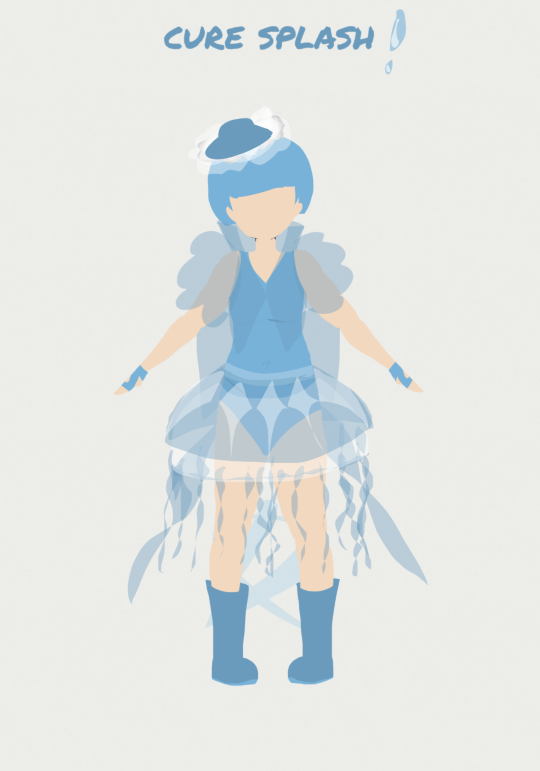
7 notes
·
View notes
Text
Leaps and Bounds: Animated Adaptation Winners



Our winners this week are @milfannihilator, @mudthing, and @nine-effing-hells!
~
@milfannihilator — Whisperwood Ceremony
I'm glad the addition of face-down cards to the contest purview got picked up and run with by so many people, truly. I think there's a lot of interesting design space there waiting to be explored, and this card serves as an excellent proof-of-concept. In a lot of ways it's brilliant in its simplicity, with the end result always being a handful of face down cards and a few cards dumped graveyardways. I feel like that description is doing it a disservice, though, because in practice there's a lot going on here. We've seen plenty of instants and sorceries that get value from the graveyard, but it's generally in the way of a second hurrah and then it's gone for good, or occasionally a hurdle to get it back to hand. This one falls squarely into the hurdle camp, but ending up on the battlefield is a delightfully unusual take. I also want to praise how this design did specifically need to be a sorcery: going straight to the graveyard means that the card it manifests can be immediately used to bring it back for double the value.
@mudthing — Through the Deep Ways//Deep-Lurker Tanglestar
Art is, as always, completely and utterly optional in these contests. That said, it is always good for a reminder every so often as to how much a piece of art can elevate a design. There's not a whole lot of mechanical cohesion going on here, but the flavorful picture you've painted is absolutely phenomenal. First of, instants and sorceries with disturb is just a genuinely good idea, full stop. Putting the body on the "backup" mode creates a lot of interesting decisions because of how many more hoops you need to jump through to get the field presence. Plus, the use of disturb here really resonates with the aforementioned excellent flavor. What better way to get a dreadful sea monster (or Starfish Kraken, in this case, which by the way I adore) to action is to, well, disturb it unwittingly in your travel Through the Deep Ways. I'm instantly fascinated to learn about both the set and the world that this card is hypothetically taken from, and I can't say much better than that for a card.
@nine-effing-hells — Prismari Thesis Defense//Octavia, the Magnum OctOpus
First of all, a thousand apologies for completely overlooking the excellent pun in the name in the entries post. But anyway, speaking of excellent flavor pictures, this fits the bill nicely as well. First off, the idea of casting a thesis defense as a literal Siege is at once hilarious and also makes complete sense. After all, who says a battle card has to be two armies clashing when we fight battles in our every day lives? Adding an alternate method for removing loyalty is both cool from a design perspective and eminently sensible. After all, Arcavios being a plane largely focused on its instants and sorceries naturally leads to an on-average lower board presence, so ensuring that plays into battles too is smart. If this were expanded to an entire hypothetical set, I could easily see that magecraft ability as a recurring feature on battles. And naturally for a battle, the back side makes all the effort you put into it very much worth it. Octavia certainly does a lot, and while it's not quite as adept at increasing power as its previous version, the card draw is a tempting carrot on the end of a tempting stick. Plus, I love the gameplay of Octavia being a less-than-ideal target of its own ability, but offering the certainty that it can always hit the magic number of 8 if you're otherwise unable.
~
We're not done yet, so don't go anywhere! Runners up are hot on your heels. —@spooky-bard
6 notes
·
View notes
Text
Roy: so let me get this straight- the Persuasion movie-
Me: so bad it pissed me off to the point my water broke
Roy: but Pride and Prejudice and Zombies
Me: also bad, too much wildly unnecessary orientalism, even for Regency England
Roy: right……
Me: Sense and Sensibility and Sea Monsters is a masterpiece though
Roy: uh huh
Me: and I’m looking forward to Little Women and Werewolves
Roy: that’s a book for sure
Me: it’s got to be better than Henry VIII: Wolfman
Roy: exactly how many of these are there?
Jason: too many, go to sleep
2 notes
·
View notes
Text
The Birth of the Horror Game Genre
youtube
What was the first horror game?

Killer Shark – 1972? – Cabinet When the question of the first horror game comes up, the poorly kept, early history of video games as a whole becomes an obstacle. You can find conversations about what the first horror game is, bring up seemingly lost cabinets of uncertain construction, or a scene in the 1975 movie Jaws in which it cuts to gameplay of an arcade game called Killer Shark where the player is a deep sea diver, armed with a speargun, shooting said killer shark, who appears from the darkness of the deep ocean… The arcade cabinet has a Sega logo, with various websites sighting it as having a 1972 release in the U.S. with no month or day specified. There's also a flyer, circulating, that shows the machine with 2 play prices, whose currency implies a Japanese release that may have been simultaneous or prior, considering the space for its second coin slot still exists in all the pictures of the U.S. release. Both sensible information and interest in this game are sparse due to its stroboscopic disk approach to film being considered so primitive that it becomes divisive as to if people even consider it video, thus making its historical value as a horror game as divisive, causing the credit of the earliest known horror game to often be split between it and another 1972 game, Haunted House.
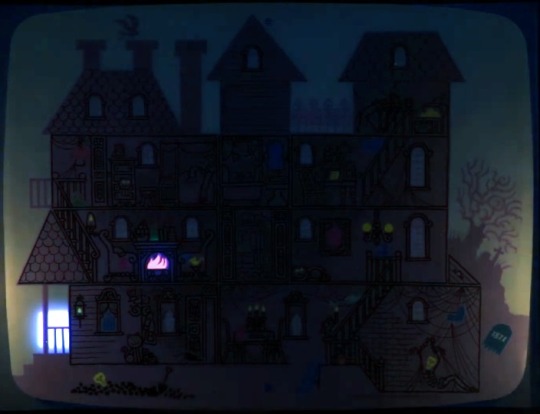
Haunted House – 1972, Aug-Oct? – Odyssey When attempting to create a variety of first-party games for their new home console, horror would join the likes of sports, education, and science fiction games, the Odyssey would see. While the creative mind behind the console would be against packing in games that required more than TV and controller to play, the console was under Magnavox, who would ultimately lean into the more board game design, relying on physical pieces in attempting to capture the family market. Released around September of ‘72, Haunted House would take advantage of the video game format by having a multiplayer game where one player is a ghost that can hide within things with the illumination of their body standing out while also blending in with the natural illumination of a CRT screen that lit the entire environment. The other player would be the detective, attempting to survive the mansion, with physical cards guiding the game without having to approach condensing text into hardware, which was meant to be cheap and thus simple. The game’s approach to horror relied on the tension of anticipating a failure state that allowed the player controlling the ghost to initiate a jump scare that would flash the screen white while they screamed “BOO!” Real scary, I know.
So what’s the earliest known survival horror game?

Hunt The Wumpus – 1973 – printed BASIC code After arcade and console players got their horror fix, the following year would see the release of a desktop computer horror game that would rely less on visuals and more on painting a picture through text like a horror novel. Gregory Yob found the output of the trend of hide and seek games published by People’s Computer Company to be… underwhelming considering what could be accomplished. He would avoid the easy grid pattern level design and have the player explore a cave system where a man-eating beast called the Wumpus was sleeping somewhere around. Also within the cave… were bottomless pits and bats—so great, they can carry a person right off! The player, armed with 5 crooked arrows, named for their… unrealistically generous movement through the air in the game’s dodecahedron-shaped world, would need to explore the cave system to hunt the Wumpus in complete darkness via their other senses like smell and feel, as light would alert the beast, and if you move too close to it, you’ll turn into it’s prey. Because of this, it’s retroactively referred to as the earliest known example of a survival horror game: exploring it’s cave system, managing your limited arrows, to hunt the monster while trying not to squander your limited inventory and become its prey. It was sold via mail order in 1973 and People’s Computer Company who advertised it as a possible tool to teach first grader’s math is credited as its publisher.
It became a franchise.
By 1975, multiple horror games were being released per year. Hunt the Wumpus’s source code was released in Creative Computing Magazine and became a series with ports, sequels, and custom alterations. Wumpus 2 would focus on re-playability. It’s new cave systems bringing changing difficulty and strategy, being described as “the same old Wumpus in a different setting, including those of your own design," referring to the ability to create your own cave system in this new entry. Wumpus 3 would advertise new hazards to the mix like earthquakes and bat migrations. Jack Emmerichs is credited with the creation of Super Wumpus, a more complex version of Wumpus where the beast would be aggressively active, while an Altair 8800 parody of the original, titled Wampus, would give players the option to primarily try to escape the cave and avoid confrontation all together.
What was the first video game adaptation of a horror movie? Could it have been inspired by:

Maneater – 1975 Mar? – Cabinet In 1975, Project Support Engineering released Maneater, advertising up to 2 players can indulge in it’s “video terror!” Controlling divers in shark-infested waters, players are to retrieve packages from the bottom and bring them to the surface, and this would be far from the last shark game…

Shark Jaws – 1975 Sep 25th – Cabinet Video game adaptations of other media predate Pong, and Pong’s company, Atari, would join on this, forming Horror Games, a front to take the bullet in case they were sued for their unlicensed adaptation, Shark Jaws, though keen eyes would recognize it using an Atari Tank II cabinet, and those who got inside might note its circuit board, marked "Atari," whose marketing VP is quoted as saying the company behind Jaws would find out Atari is behind Horror Games in only 3 days. Advertised as “exciting underwater video terror!” Shark Jaws had you swimming for fish in a third person while trying to avoid being shark food. It’s been praised for it’s sound design, using heavy reverb to emulate its setting, and despite claims of it selling thousands, tracking serial numbers have led to collectors finding it, more likely, only had 500 ever even made. Coincidentally, much like Killer Shark, it too would be used in a movie and 3 years after its release, to boot!
What was the first journalist attack on horror games?

DeathRace – 1976 April - Cabinet Games in the horror genre would, of course, eventually attract backlash. In December of 1975, Destruction Derby would release where the player, controlling a car, would attempt to ram into others. It was licensed to Chicago Coin by Exidy, who would clone the game to also profit from it without competing with their licensee. New hire, Howell Ivy, said the easy approach would be to replace the visuals, which was done by replacing the other cars with fleeing people! Allegedly titled Pedestrian before becoming Death Race 98 and then shortened to Death Race. The cabinet featured 2 Grim Reapers, driving cars, with the pedestrians being named Gremlins, who would scream before being run over. A reporter would see kids lined up to play Death Race and run a story in Seattle, beginning a snowball of media covering the controversial game about running over fleeing pedestrians. Becoming taboo, of course, caused the game’s sales to shoot from hundreds to thousands, with video game magazines reporting it in the top 10 highest grossing arcade games for 2 years!
How much of an arcade game is in the cabinet’s construction, itself?

Triple Hunt – 1977 April – Cabinet On the market in 1977 was a new 3 in 1 arcade cabinet by Atari, Triple Hunt: a collection of shooting games, featuring Raccoon Hunt, where you shoot raccoons before they get to the top of a tree; Hit the Bear, where you take aim at bears with attached targets that, because the sprites display horizontally stretched, look more like eyes; and a game called Witch Hunt, where you’re firing at a haunted mansion where a witch circles the sky. The game tracks the gun’s position on the screen via 2 potentiometers in the gun, while a display mask and a one-way mirror in front of the monitor let light through and reflect the game’s sprites, creating a sense of depth and allowing them to pass behind and in front of objects. This allows the game to advertise multiple 3D environments. The game’s creator, Owen Rubin, would explain that the more complex method of gun tracking was chosen over using a light-gun, sensing the sprites when they’re not behind objects out of fear that outside lights like fluorescents would get in the way. This cabinet’s construction is an example of how I think so much of the experience is often lost when trying to translate an arcade game to a 2D screen. So much of the experience is in the cabinet’s construction itself, which is often not even attempted to be replicated. The game’s spooky sound design came from a combination of the game’s microprocessor producing sound effects and an 8-track tape producing the ambient environmental noise. Witch Hunt would have the most tape and not be the only witch game of this error.
There’s a horror game of a city’s tourist attraction.

The House of Seven Gables - 1978 - Apple II, TRS-80, Sorcerer Perhaps the most well-known thing about Salem, Massachusetts, is the witch trials of the 1600s. During the time, stood the Turner house that would eventually sell to the family of Susanna Ingersoll, who would entertain her cousin there, telling him stories of its old history. The attic had bits of framing and plaster from former gables built in 1668. This cousin would make the house famous by being inspired to write the 1851 novel, The House of the Seven Gables. The house is now an icon of Salem, becoming a museum and one with a horror game. Greg Hassett’s 1978 text adventure, The House of Seven Gables, advertises you raid for valuables but must defeat the witch to escape… and said witch is not the only danger. Lurking the house are life-threatening ghouls who—you can throw chemicals in their face. A GHOST who also doesn’t want you to leave with valuables and can be life-threatening himself if you refuse to relinquish your plunder. There’s even a vampire who you can drive off with garlic found in the kitchen, but it won’t work forever… so you might want to prepare to combat it a different way.
Conclusion The number of horror games released was increasing every year, but what even constitutes a video game is divisive, from Killer Shark’s stroboscopic disk approach to Haunted House’s absence of memory or a processor to the House of Seven Gables' absence of motion picture. The line of what is video and what are video games may be forever debated, and especially when a game lacks a stereotypically horror setting or characters, it can become as divisive to decipher which game’s creator’s intentions were horror or if that’s even what YOU define as a horror game. What is certain is the word "horror" can catch the interest of many people who previously enjoyed media described as such.
2 notes
·
View notes
Text
Cryptid of the Day!
Side note: Later on your going to see a LOT of creatures from Brazil, because god DAMN do they have some interesting stuff. It’s funny, all around the world you see repeats of similar cryptids with slightly different aspects and names. I could spend all day talking about different cryptids from different parts of the world that are bipedal, unusually large primates, or long necked, humongous sea monsters the seem to find their way into any lake big enough to fit a kayak. But Brazil?? If you want something unique and original , look to almost any cryptid that’s popped up in Brazil.
Capelobo: NOW, I best be getting to the actual topic of the day; the capelobo of Brazil! Capelobo’s are lycanthropes, like Werewolves! ….. except werewolves are probably not the best comparison. So let’s go through the process of the Capelobo. Let’s say you’re old, wrinkly, hunched over and frankly just sick of being well…. Old. So! You do what any sensible senior citizen such as yourself would do: sell your humanity and sense of morality in exchange for a new body, your Capelobo body!! Now remember, once you have chosen to become a capelobo, you may never return to your human body or your humanity, but you are gifted with two new forms! These two forms would include your animal form, a tapir with some oddly dog like features, and your humanoid form. Now, the animal form is really just for disguise, what capelobos are REALLY known for is their primary humanoid, ‘werewolf’ form. You are given the head of an anteater (or in some, rare myths, the head of a tapir or a dog), the body of an incredibly buff man (plus a bunch of fur), long, powerful anteater claws, and two bottle shaped legs with PERFECTLY rounded hooves that make your tracks especially unique! Plus! You are also gifted with a banshee screech that can be heard from over ten miles away and drive victims straight up insane, incredible strength, basketball player hight, impenetrable skin, and a foul smell! And yes I know, compared to all of your other new abilities, foul smell sounds like an insult, but honestly….. it’s kind of your new best weapon. When I say foul, I mean FOUL. The sheer power of the capelobo’s stinky-ness is enough to stun its prey, rendering it completely unconscious and giving it headaches and dizziness for days after if it were to somehow survive the encounter. All together, I don’t know about you but that sounds like a pretty damn good deal to me! You could waste away in a nursing home watching jeopardy as you slowly fade into eternal unconsciousness, OR, you could spontaneously become an (honestly ) kind of over powered buff ass furry that lives significantly longer life being a forest goblin! I mean, really, of course my default answer would initially be “FUCK YEAH!! FURRY-IFY ME!” But before we get to hasty, let us into our ‘lovely’ little capelobo life style first….
The Tea:
Despite what you may assume from their giant claws and muscles capable of ripping a man in half without a sweat, capelobos aren’t necessarily meat eaters. But they sure as hell are carnivores! Capelobos are actually vampiric! They survive primarily out of sucking the blood out of their victims, and sometimes sucking the brains of their prey straight out of their skull.
Capelobo’s are beasts, and they are considered evil, but not because they’re man eaters. Don’t get me wrong, capelobo’s are known for draining a guy who’s in the wrong place at the wrong time, but humans really aren’t on their list of common prey. See, it’s the diet that me back the hell out, and drops these guys out of lost for my top three favorite cryptids. These guys just live off cute baby animals. Specially kittens, puppies and baby goats. Like- all of the cutest baby animals of all time.
Where to find in other media:
Capelobo is a monster that can be found in DND, and an inscription mod set! Unfortunately though, that’s all I could really find for this one!
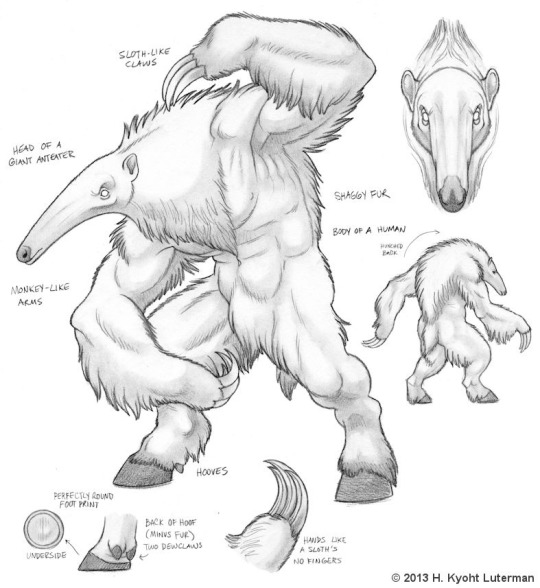
credit to cryptidwiki and H. Kyoht Luterman!
TW: FOR MILD BLOOD AND VIOLENCE
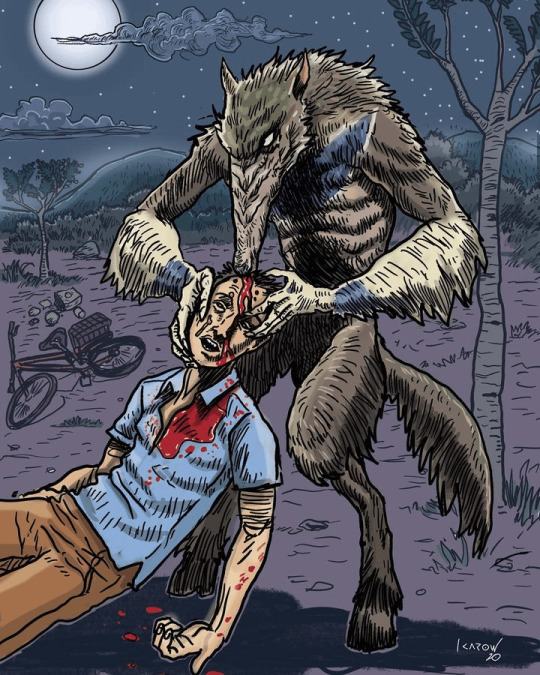
credit to Oddityhive on Reddit!
6 notes
·
View notes
Note
Hey, Keegan. I heard you wanted to read a book, so imma lend one to you, it's Sense and Sensibility and Sea Monsters. Do not ruin it.
- @callsignravenna
well thanks kid. i’ll make sure to take care of it
1 note
·
View note
Text
The Ultimate Austen Showdown
Henry Crawford, John Willoughby, George Wickham, Captain Frederick Tilney, and William Elliot have one mission: seduce a love-lorn Anne Elliot, six months before Wentworth is set to return.
Will our most perceptive Austen heroine prevail? Or will she fall victim to the machinations of Austen's most charming and persuasive men? You decide!
91 notes
·
View notes
Text
Бен Уинтерс "Разум и чувства и гады морские" (2009)
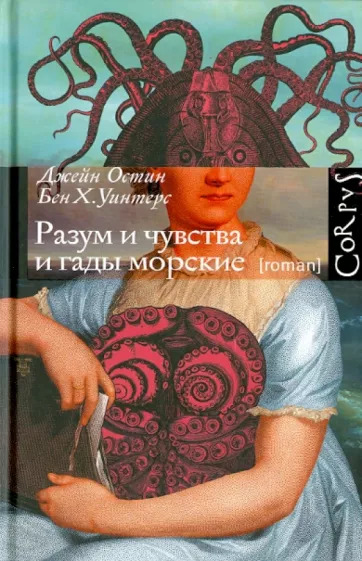
Остин не указываю среди авторов, потому что её не спросили. Среди жанров написан мешап. Первый раз читаю что-то подобное. Книга вышла в один год с более известным "Гордость и предубеждение и зомби". Комментарии возмущены обращением с классикой. Мне же понравилось. Возможно потому что в детстве зачитывалась Гоголем и По. Несмотря на явное влияние Лавкрафта как раз именно По отдаёт книга. Он тоже был склонен к иронии порой. Особенно запомнился в этом плане рассказ, где герой оскверняет труп, чтобы сделать из него джека-в-коробке, напугав таким образом виновного. До такого объяснения кажется будто история мистическая. Да и не люблю Остин особо. Пыталась начать "Эмму" и "Аббатство". В итоге слишком душно от местных героев. Сказывается воспитание на советских книжках, где герои что-то делали на пользу другим, а не сплетничали и ходили в гости пока их крепостные зарабатывают им деньги. Тем не менее автор хорошо урезал оригинальный текст местами и его собственный вполне хорош. Запомнилось описание мига падения купола станции. Оно отличное.
Ещё понравилось как автор гиперболизирует характерную тем книгам жестокость. Местные слуги вынуждены участвовать в гладиаторских боях с мутантами из моря. Дурной тон спасать рабочего станции, которого заживо ест рыба. Дети-отличный способ кормить монстров, есть орангутаны, испражняющиеся в центре гостиной. Звучит сюром, но хорошо отмечает некоторые особенности тех произведений. Что норма для того времени, сильно смущает нас. Например, в "Острове сокровищ" убийство чаек героем-подростком отличный поступок и поощряется. В "Белом клыке" норма, что животное загрызло шерифа из-за его неосторожности. Потенциально опасного зверя никто не собирается убивать. В историях о индейцах они не люди. Хотя их возмущение отниманием их исконных земель разумно. В "Смерти на Ниле" один из персонажей описывает как бы хотел расправится с пожилой женщиной, потому что она видите ли поучала его пару раз. Обратите внимание, последний пример из произведения начало прошлого века.
Отсюда вытекает ещё одна крутая деталь книги. Автор не делает персонажей более близкими к нашему времени, чтобы они вызвали симпатию. Сестрам Дэшвуд плевать на несчастного рабочего станции. Другой бы автор сделал бы временную тягу к наукам Марианны в конце поводом стать учёной. Здесь это временное увлечение, которое исправило замужество. К сожалению.
Не могу не отметить как уникальны до сих пор отношения Элинор и полковника. Редко даже сейчас найдёшь такую дружбу между мужчиной и женщиной. Они заботятся друг о друге и всегда могут найти темы для разговоров. В конце девушка даже не испытывает тошноту от его щупалец.
Идея сделать ловеласа Уиллоби, пользующегося осьминожим манком, чтобы знакомится с дамами удалась. Голливуд хорошо показал какие кидалы любители сокровищ. Серьёзно, только у Рика О'Коннела во всех фильмах одна и та же левушка рядом. И то из-за кастинга третьей части не совсем. Идея сделать мистера Палмера классическим героем Лавкрафта, а миссис Мидлтон похищенной трофейной женой тоже удалась. Последняя радовала кровожадностью и холодностью. В конце рада, что ей удалось уйти, хотя жаль детей. Но не понять не могу.
В конце в вопросах к тесту сравнивается желание героинь выйти замуж, тогда как она бежит от брака. В её случае логично. Она гордая островная принцесса, которую похитили. Конечно ей милей свобода и опостылела Англия. Тогда как героини обычные белые девушки, которым всю жизнь внушают, что без брака ни куда. Увы, тогда особо не поработаешь сама на себя.
Минисом могу назвать одну логическую несостыковку. Постоянно подчёркивается нелюдимость острова, поэтому что едят героини не ясно.
Вывод: удачное осовременивание классики
P.S. Танцующие как кастаньеты щупальца полковника отличное сравнение.
Никогда не понимала зачем нужны карты в книгах, но ок.
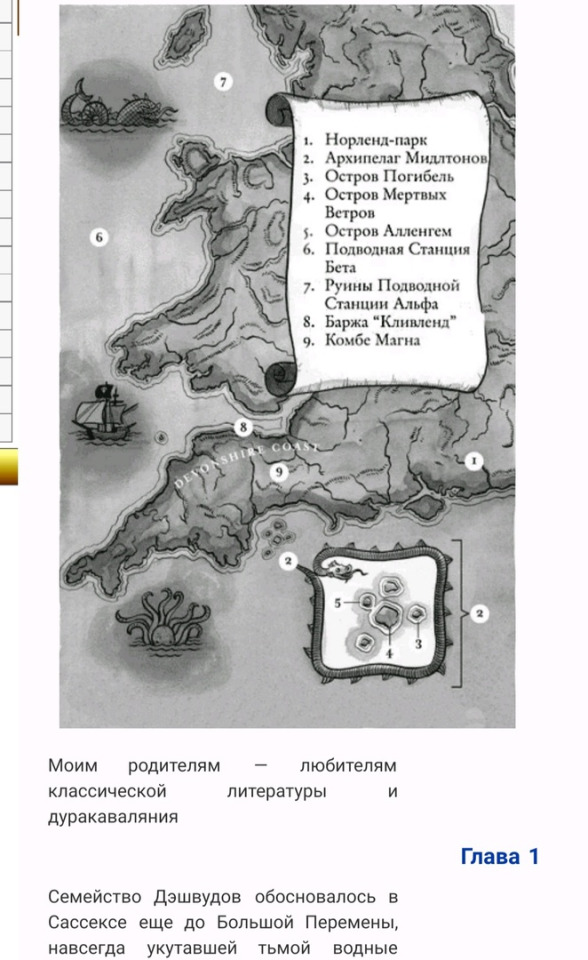
Одна из теорий.

В лучших традициях, герой успел написать целый текст.

С пенсиями было всегда трудно.

То как их высокопарные разговоры разбиваются подобными действиями очень весело.

Мать героинь может быть крутой.
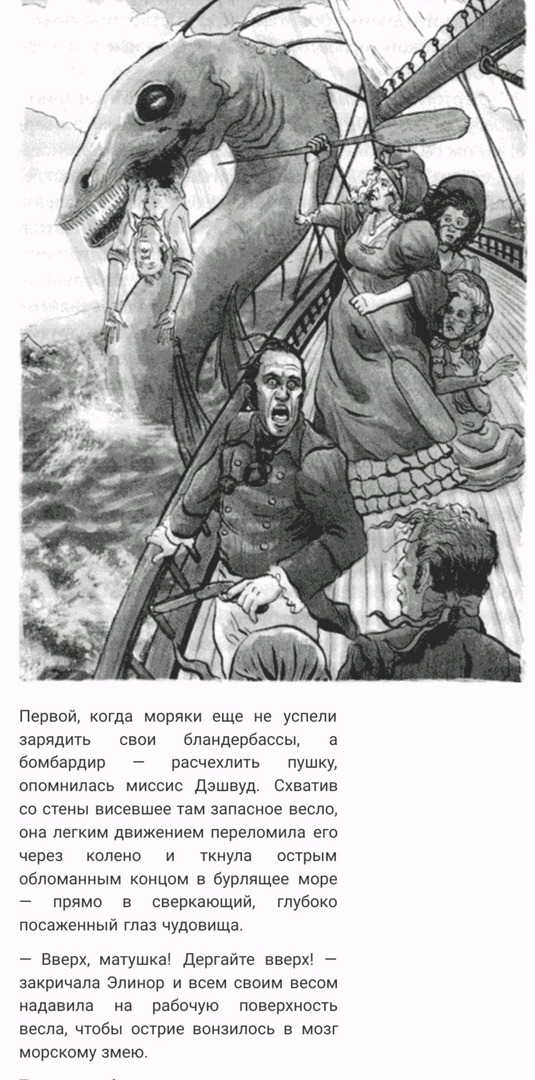
Ещё одна версия.

Леди явна недовольна положением украденной наложницы при старике, проявляя пассивную агрессию.

Старый добрый Лавкрафт забегает иногда.

Главные качества молодых людей тех лет.


Комичное прощание.

Эдвард тоже может быть крутым.

Мистер Палмер.

Мнение благородных о более простых.
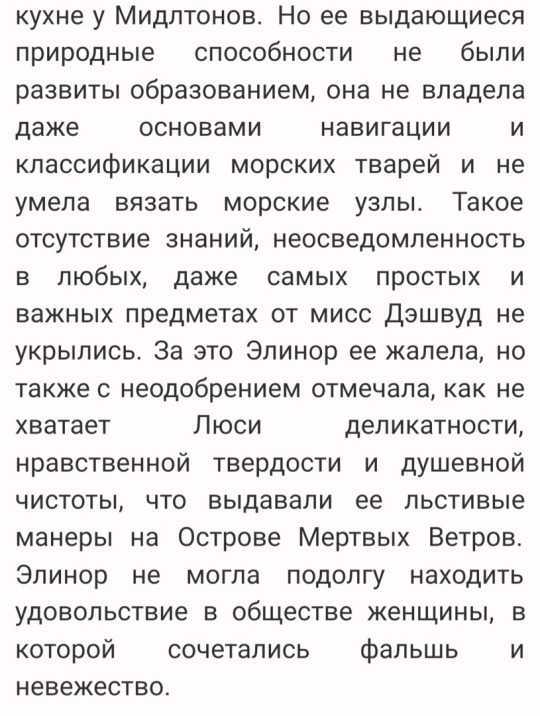
Морские монстры не повод прерывать беседы.
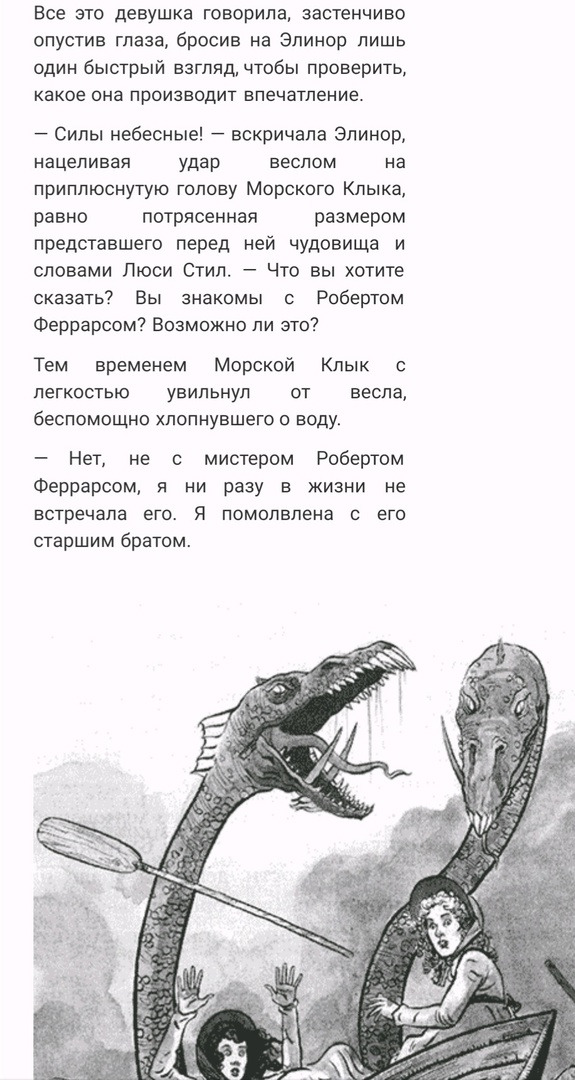
На одержимую культом Марианну всем плевать.

Крутая леди Мидлтон.


Про подопечную полковника.


Местное правосудие.

Пираты.

Ей удалось.

Момент с куполом.


Прям как все мы, когда любимый пейринг медлит.

Классная фраза про кошек.

Эдвард держит слово, данное нелюбимой

0 notes
Text
Reading List (Latest Update April 9, 2025)
The full list of books I'm interested in reading. Spoiler before you open the read-more: This list has 500+ entries so it's a tad long.
I'm pretty much constantly adding things to all of my lists- hence why I'm amending when this was last updated to the title itself- and will update this post anytime I update the wheel I use to randomize my next choice, which usually happens after I've added or subtracted a significant number of options.
Beowulf
Norton Anthology of Theory and Criticism; Third Edition
The Hitchhiker’s Guide to the Galaxy by Douglas Adams
Watership Down by Richard Adams
The Goblin Emperor by Katherine Addison
Dream Count by Chimamanda Ngozi Adichie
Friday Black by Nana Kwame Adjei-Brenyah
Who’s Afraid of Virginia Woolf? by Edward Albee
Monsieur Proust by Celeste Albaret
The Five People You Meet in Heaven by Mitch Albom
Tuesdays With Morrie by Mitch Albom
Little Women by Louisa May Alcott
The Kitchen Boy by Robert Alexander
Brick Lane by Monica Ali
The Divine Comedy by Dante Alighieri
Daughter of Fortune by Isabel Allende
The House of the Spirits by Isabel Allende
Eva Luna by Isabel Allende
I Am Not Sick I Don’t Need Help! by Xavier Amador, Ph.D
The City in the Middle of the Night by Charlie Jane Anders
Andersen’s Fairy Tales by H.C Andersen
The Whispering Dark by Kelly Andrew
I Know Why the Caged Bird Sings by Maya Angelou
Animorphs Series by K.A Applegate
Our Wives Under the Sea by Julia Armfield
Salt Slow by Julia Armfield
Mostly Dead Things by Kristen Arnett
I, Robot by Isaac Asimov
The Witchwood Knot by Olivia Atwater
Oryx and Crake by Margaret Atwood
Emma by Jane Austen
Mansfield Park by Jane Austen
Northanger Abbey by Jane Austen
Pride and Prejudice by Jane Austen
Sense and Sensibility by Jane Austen
Oracle Night by Paul Auster
Bunny by Mona Awad
A Man Called Ove by Fredrik Backman
Borderline by Mishell Baker
If Beale Street Could Talk by James Baldwin
Just Above My Head by James Baldwin
Crash by J.G Ballard
North American Lake Monsters by Nathan Ballingrud
Cousin Betty by Honore de Balzac
The Language of Thorns by Leigh Bardugo
Ninth House by Leigh Bardugo
The Hellbound Heart by Clive Barker
I’m With the Band by Pamela Des Barres
The Beautiful Thing That Awaits Us All by Laird Barron
Gateways to Abomination by Matthew M. Bartlett
Simulacra and Simulation by Jean Baudrillard
The Wizard of Oz by L. Frank Baum
Cinderella is Dead by Kalynn Bayron
The Last Unicorn by Peter S. Beagle
The Stone in the Skull by Elizabeth Bear
Memoirs of a Dutiful Daughter by Simone De Beauvoir
The Second Sex by Simone De Beauvoir
Waiting For Godot by Samuel Beckett
Art of Fiction by Walter Besant and Henry James
Pushkin; A Biography by T.J Binyon
The Etched City by K.J Bishop
The Cruel Prince by Holly Black
The Atlas Six by Olivie Blake
Out of Africa by Karen Blixen
In the Vanisher’s Palace by Aliette De Bodard
Dandelion Daughter by Gabrielle Boulianne-Tremblay
Wake of Vultures by Lila Bowen
Vengeance Road by Erin Bowman
The Ends of the World by Peter Brannen
My Sister, the Serial Killer by Oyinkan Braithwaite
Slewfoot by Brom
Jane Eyre by Charlotte Bronte
Wuthering Heights by Emily Bronte
Horse by Geraldine Brooks
Angels and Demons by Dan Brown
A Song of Wraiths and Ruin by Roseanne A. Brown
Sonnets From The Portuguese by Elizabeth Barrett Browning
The Shockwave Rider by John Brunner
The Serpent and the Rose by Kathleen Bryan
Helter Skelter by Vincent Bugliosi and Curt Gentry
Notes of a Dirty old Man by Charles Bukowski
Between Two Fires by Christopher Buehlman
The Master and Margarita by Mikhail Bulgakov
A Clockwork Orange by Anthony Burgess
Pontypool Changes Everything by Tony Burgess
Song of the Simple Truth by Julia de Burgos
A Little Princess by Frances Hodgson Burnett
The Secret Garden by Frances Hodgson Burnett
Gender Trouble by Judith Butler
Parable of the Sower Octavia E. Butler
American Predator by Maureen Callahan
In Cold Blood by Truman Capote
A Most Wanted Man by John Le Carre
Through the Woods by Emily Carrol
An Oresteia translated by Anne Carson
Glass, Irony, and God by Anne Carson
The Vorrh by B. Catling
Don Quixote by Miguel de Cervantes
The Amazing Adventures of Kavalier and Clay by Michael Chabon
The City of Brass by SA Chakraborty
The Long Way to a Small, Angry Planet by Becky Chambers
Moliere Biography by H.C Chatfield-Taylor
The Canterbury Tales by Geoffrey Chaucer
The Perks of Being a Wallflower by Stephen Chbosky
Journey to the West by Wu Cheng-en
Wicked Fox by Kat Cho
The Awakening by Kat Chopin
Murder on the Orient Express by Agatha Christie
The Bone Witch by Rin Chupeco
Finna by Nino Cipri
The Divinity Student by Michael Cisco
The Black God’s Drums by P. Djeli Clark
Jonathan Strange and Mr. Norrell by Susanna Clarke
Piranesi by Susanna Clarke
Atomic Habits by James Clear
Parasite by Darcy Coates
The Alchemist by Paulo Coelho
The Meaning of Consuelo by Judith Ortiz Cofer
Swimming With Giants by Anne Collet
The Adventures of Pinocchio by Carlo Collodi
Heart of Darkness by Joseph Conrad
Labyrinth Lost by Zoraida Cordova
The Extinction of Irena Rey by Jennifer Croft
Dark Matter by Blake Crouch
Inherit the Wind by Linda Cushman
Plain Bad Heroines by Emily M. Danforth
Dreadnought by April Daniels
The Devourers by Indra Das
Fifth Business by Robertson Davies
No Longer Human by Osamu Dazai
Bones & All by Camille Deangelis
The Child Finder by Rene Denfeld
The Red Tent by Anita Diamant
Do Androids Dream of Electric Sheep by Philip K. Dick
A Tale of Two Cities by Charles Dickens
Great Expectations by Charles Dickens
Oliver Twist by Charles Dickens
Collected Poems of Emily Dickinson
The Year of Magical Thinking by Joan Didion
The Memory Palace by Nate Dimeo
Crime and Punishment by Fyodor Dostoevsky
The Possessed by Fyodor Dostoyevsky
The Adventures of Sherlock Holmes by Sir Arthur Conan Doyle
Escaping Exodus by Nicky Drayden
An American Tragedy by Theodore Dreiser
House of Sand and Fog by Andre Dubus III
The Bielski Brothers: The True Story of Three Men Who Defied the Nazis, Built a Village in the Forest, and Saved 1,200 Jews by Peter Duffy
The Count of Monte Cristo by Alexandre Dumas
The Man in the Iron Mask by Alexandre Dumas
The Three Musketeers by Alexandre Dumas
Toad by Katherine Dunn
Ella Minnow Pea by Mark Dunn
A Little Bit of Auras by Cassandra Eason
The New Bottoming Book by Dossie Easton and Janet W. Hardy
The New Topping Book by Dossie Easton and Janet W. Hardy
The Name of the Rose by Umberto Eco
A Heartbreaking Work of Staggering Genius by Dave Eggers
Nickel and Dimed by Barbara Ehrenreich
This is How You Lose the Time War by Amal El-Mohtar and Max Gladstone
American Psycho by Bret Easton Ellis
Less Than Zero by Bret Easton Ellis
I Have No Mouth And I Must Scream by Harlan Ellison
The Collected Stories by Welty Eudora
Middlesex by Jeffrey Eugenides
The Virgin Suicides by Jeffrey Eugenides
Introducing Evolutionary Psychology by Dylan Evans and Oscar Zarate
A Collapse of Horses by Brian Evenson
The Crimson Petal and the White by Michel Faber
The Wretched of the Earth by Frantz Fanon
What Ever Happened to Baby Jane by Henry Farrell
As I Lay Dying by William Faulkner
Sanctuary by William Faulkner
The Sound and the Fury by William Faulkner
Emily Wilde's Encyclopaedia of Faeries by Heather Fawcett
The Faceless Old Woman Who Secretly Lives In Your Home by Joseph Fink and Jeffrey Cranor
It Devours! by Joseph Fink and Jeffrey Cranor
Welcome to Night Vale by Joseph Fink and Jeffrey Cranor
Time and Again by Jack Finney
Tender is the Night by F. Scott Fitzgerald
Madame Bovary by Gustave Flaubert
Dark Places by Gillian Flynn
Gone Girl by Gillian Flynn
Sharp Objects by Gillian Flynn
Everything is Illuminated by Jonathan Safran Foer
Johnny Tremain by Esther Hoskins Forbes
The Good Soldier by Ford Madox Ford
A Passage to India by E.M Forster
Tsumiko and the Enslaved Fox by Forthright
The Diary of Anne Frank
Lies (and the Lying Liars Who Tell Them) by Al Franken
River of Teeth by Sarah Gailey
Upright Women Wanted by Sarah Gailey
Good Omens by Neil Gaiman and Terry Pratchett
Neverwhere by Neil Gaiman
At Fear’s Altar by Richard Gavin
Count Zero by William Gibson
The Miracle Worker by William Gibson
Neuromancer by William Gibson
One Dark Window by Rachel Gillig
The Yellow Wallpaper by Charlotte Perkins Gilman
Howl and Other Poems by Allen Ginsberg
The Empress of Forever by Max Gladstone
Dead Souls by Nikolai Vasilievich Gogol
Lord of the Flies by William Golding
Marathon Man by William Goldman
These Violent Delights by Chloe Gong
Come Closer by Sara Gran
The Nature of Witches by Rachel Griffin
Grimm’s Fairy Tales by Jacob and Wilhelm Grimm
My Life in Orange by Tim Guest
The Library of the Unwritten by A.J Hackwith
The Curious Incident of the Dog in the Night Time by Mark Haddon
The Midnight Library by Matt Haig
The Raw Shark Texts by Steven Hall
The Gone-Away World by Nick Harkaway
I Who Have Never Known Men by Jacqueline Harpman
Empire of Light by Alex Harrow
The Little Locksmith by Katherine Butler Hathaway
City of Lies by Sam Hawke
The Library at Mount Char by Scott Hawkins
The Scarlet Letter by Nathaniel Hawthorne
Bride by Ali Hazelwood
Descendant of the Crane by Joan He
Sacred Time by Ursula Hegi
Catch 22 by Joseph Heller
The Complete Short Stories of Ernest Hemingway
The Sun Also Rises by Ernest Hemingway
The Final Girl Support Group by Grady Hendrix
How to Sell a Haunted House by Grady Hendrix
We Sold Our Souls by Grady Hendrix
Dune Series by Frank Herbert
Cover-Up by Seymour M. Hersh
Siddhartha by Hermann Hesse
Hex by Thomas Olde Heuvelt
The Last Cuentista by Donna Barba Higuera
Heart Shaped Box by Joe Hill
The Outsiders by S.E Hinton
The Book of Magic by Alice Hoffman
The Ice Queen by Alice Hoffman
The Invisible Hour by Alice Hoffman
Magic Lessons by Alice Hoffman
Practical Magic by Alice Hoffman
The Rule of Magic by Alice Hoffman
Rescuing Patty Hearst: Memories From a Decade Gone Mad by Virginia Holman
The Iliad by Homer
The Complete Polysyllabic Spree by Nick Hornby
High Fidelity by Nick Hornby
Songbook by Nick Hornby
To Escape the Stars by Robert Hoskins
A Thousand Splendid Suns by Khaled Hosseini
The Kite Runner by Khaled Hosseini
The Butterfly Garden by Dot Hutchison
Pigs at the Trough by Arianna Huffington
The Hunchback of Notre Dame by Victor Hugo
Les Miserables by Victor Hugo
In the House in the Dark of the Woods by Laird Hunt
Warrior Cats Series by Erin Hunter
The Forest of Stolen Girls by June Hur
The Mirror Empire by Kameron Hurley
The Stars Are Legion by Kameron Hurley
Their Eyes Were Watching God by Zora Neale Hurston
Brave New World by Aldous Huxley
Dread Nation by Justina Ireland
A Single Man by Christopher Isherwood
Never Let Me Go by Kazuo Ishiguro
The Unconsoled by Kazuo Ishiguro
The Haunting of Hill House by Shirley Jackson
The Lottery by Shirley Jackson
We Have Always Lived in the Castle by Shirley Jackson
Daisy Miller by Henry James
False Bingo by Jac Jemc
The City We Became by N.K Jemisin
The Fifth Season by N.K Jemisin
Nervous System: Or, Losing My Mind in Literature by Jan Lars Jensen
The Dream-Quest of Vellitt Boe by Kij Johnson
Howl’s Moving Castle by Dianna Wynne Jones
My Heart is a Chainsaw by Stephen Graham Jones
The Only Good Indians by Stephen Graham Jones
Finnegan’s Wake by James Joyce
Ulysses by James Joyce
The Trial by Franz Kafka
The Archidamian War by Donald Kagan
The Fall of the Athenian Empire by Donald Kagan
The Outbreak of the Peloponnesian War by Donald Kagan
The Peace of Nicias and the Sicilian Expedition by Donald Kagan
Hell on Wheels by Raven Kaldera
Kneeling in Spirit by Raven Kaldera
Real Service by Raven Kaldera and Joshua Tenpenny
The Vegetarian by Han Kang
The Hunger by Alma Katsu
Girl, Interrupted by Susanna Kaysen
The Story of My Life by Helen Keller
Out of Control by Kevin Kelly
The Paper Menagerie and Other Stories by Liu Ken
Ironweed by William Kennedy
You By Caroline Kepnes
On the Road by Jack Kerouac
Flowers for Algernon by Daniel Keyes
The Salt Grows Heavy by Cassandra Khaw
The Secret Life of Bees by Sue Monk Kidd
The Very Best of Caitlin R Kiernan
Carrie by Stephen King
Christine by Stephen King
Cujo by Stephen King
Pet Sematary by Stephen King
The Shawshank Redemption by Stephen King
The Shining by Stephen King
The Stand by Stephen King
Thornhedge by T. Kingfisher
The Twisted Ones by T. Kingfisher
The Jungle Book by Rudyard Kipling
The Legends of King Arthur and His Knights by Sir James Knowles and Sir Thomas Malory
A Separate Peace by John Knowles
Gidget by Frederick Kohner
The Cipher by Kathe Koja
Into the Wild by Jon Krakauer
Whalefall by Daniel Kraus
Extravagance by Gary Krist
Empire of the Vampire by Jay Kristoff
Babel by R.F Kuang
The Poppy War by R.F Kuang
The Namesake by Jhumpa Lahiri
False Hearts by Laura Lam
The Wide, Carnivorous Sky by John Langan
The Devil in the White City by Erik Larson
The Girl With the Dragon Tattoo by Stieg Larsson
The Changeling by Victor Lavelle
Lady Chatterley’s Lover by David Herbert Lawrence
Lies of the Fae by M.J Lawrie
Carmilla by Joseph Sheridan Le Fanu
A Wrinkle in Time by Madeleine L’Engle
A Wizard of Earthsea by Ursula K. Le Guin
The Dispossessed by Ursula K Le Guin
The Left Hand of Darkness by Ursula K. Le Guin
The Song of Names by Norman Lebrecht
Ancillary Justice by Ann Leckie
The Raven Tower by Ann Leckie
Jade City by Fonda Lee
Forest of Souls by Lori M. Lee
Pachinko by Min Jin Lee
The Dirt; Confessions of the Most Notorious Rock Band by Tommy Lee
Ninefox Gambit by Yoon Ha Lee
The Complete Pyramids by Mark Lehner
Solaris by Stanislaw Lem
Imperialism, The Highest Stage of Capitalism by Vladimir Lenin
Human Errors by Nathan H. Lents
The Phantom of the Opera by Gaston Leroux
The Fortress of Solitude by Jonathan Lethem
Rosemary’s Baby by Ira Levin
Small Island by Andrea Levy
A Ruin of Shadows by L.D Lewis
Teatro Grottesco by Thomas Ligotti
Six Crimson Cranes by Elizabeth Lim
Let the Right One In by John Lindquist
Stranger Things Happen by Kelly Link
The Holy Barbarians by Lawrence Lipton
The Three Body Problem by Cixin Liu
Her Body and Other Parties by Carmen Maria Machado
In the Dream House by Carmen Maria Machado
Last Night at the Telegraph Club by Malinda Lo
His Black Tongue by Mitchell Luthi
The Hike by Drew Magary
The Naked and the Dead by Norman Mailer
The Centre by Ayesha Manazir Siddiqi
Sea of Tranquility by Emily St. John Mandel
One Hundred Years of Solitude by Gabriel Garcia Marquez and Gregory Rabassa
A Month Of Sundays: Searching For The Spirit And My Sister by Julie Mars
Life of Pi by Yann Martel
Mary Reilly by Valerie Martin
Property by Valerie Martin
North Woods by Daniel Mason
The Razor’s Edge by W. Somerset Maugham
Rebecca by Daphne du Maurier
The Good Lord Bird by James McBride
The Road by Cormac McCarthy
A Bolt from the Blue and Other Essays by Mary McCarthy
The Group by Mary McCarthy
Women in the Picture by Catherine McCormack
Angela’s Ashes by Frank McCourt
I’m Glad My Mom Died by Jennette McCurdy
Fletch by Gregory Mcdonald
Atonement by Ian McEwan
The Rapture by Claire McGlasson
Every Heart a Doorway by Seanan McGuire
Quattrocento by James McKean
The Nanny Diaries by Emma McLaughlin
Penric’s Progress by Lois McMaster Bujold
Terms of Endearment Larry McMurtry
The Throne of Bones by Brian McNaughton
Moby Dick by Herman Melville
The Colonizer and the Colonized by Albert Memmi
A Mencken Chrestomathy by H.L Mencken
My Life as Author and Editor by H.L Mencken
Peyton Place by Grace Metalious
The Vanishing Newspaper by Philip Meyer
The Silent Patient by Alex Michaelides
Iron Council by China Mieville
Perdido Street Station by China Mieville
The Life of Edna by St. Vincent Millay
Death of a Salesman by Arthur Miller
Sexus by Henry Miller
Cloud Atlas by David Mitchell
Slade House by David Mitchell
Gone With The Wind by Margaret Mitchell
The Butcher of the Forest by Premee Mohamed
No One Will Come Back For Us by Premee Mohamed
Social Origins of Dictatorship and Democracy by Barrington Moore Jr.
The Beautiful Ones by Silvia Moreno-Garcia
Certain Dark Things by Silvia Moreno-Garcia
Beloved by Toni Morrison
Jazz by Toni Morrison
Song of Solomon by Toni Morrison
Lapvona by Ottessa Moshfegh
Gideon the Ninth by Tamsyn Muir
The Emperor of All Maladies by Siddhartha Mukherjee
Kafka on the Shore by Haruki Murakami
Men Without Women by Haruki Murakami
Norwegian Wood by Haruki Murakami
The Wind-Up Bird Chronicles by Haruki Murakami
In the Miso Soup by Ryu Murakami
Convenience Store Woman by Sayaka Murata
Earthlings by Sayaka Murata
The Bee Sting by Paul Murray
Speak, Memory by Vladimir Nabokov
Reading Lolita in Tehran by Azar Nafisi
Under the Pendulum Sun by Jeannette Ng
The Complete Works of Friedrich Nietzsche
The Time Traveler’s Wife by Audrey Niffenegger
Ringworld by Larry Niven
Vurt by Jeff Noon
Mutiny on the Bounty by Charles Bernard Nordhoff and James Norman Hall
A Deadly Education by Naomi Novik
The Morningside by Tea Obreht
The Tiger’s Wife by Tea Obreht
Twelve Nights at Rotter House by J.W Ocker
The Memory Police by Yoko Ogawa
Revenge by Yoko Ogawa
The Girl Who Fell Beneath the Sea by Axie Oh
Akata Witch by Nnedi Okorafor
Binti by Nnedi Okorafor
Flowers of the Sea by Reggie Oliver
Starvation Heights by Gregg Olsen
How To Breathe Underwater by Julie Orringer
Down and Out in Paris and London by George Orwell
Radio Silence by Alice Oseman
Chouette by Claire Oshetsky
When the Emperor Was Divine by Julie Otsuka
Mr. Fox by Helen Oyeyemi
White Is For Witching by Helen Oyeyemi
Certain Dark Things by M.J Pack
The Secret of Ventriloquism by Jon Padgett
The Gnostic Gospels by Elaine Pagels
Fight Club by Chuck Palahniuk
Haunted by Chuck Palahniuk
Complete Stories of Dorothy Parker
Dark Harvest by Norman Partridge
Bel Canto by Ann Patchett
Wolf Brother by Michelle Paver
Gormenghast Series by Mervyn Peake
The West Passage by Jared Pechacek
Night Film by Marisha Pessl
How the Light Gets In by Jolina Petersheim
The Song the Owl God Sang by Benjamin Peterson
A Mankind Beyond Earth by Claude A. Piantadosi
My Sister’s Keeper by Jodie Piccoult
We Owe You Nothing by Punk Planet
The Bell Jar by Sylvia Plath
The Unabridged Journals of Sylvia Plath
Complete Stories and Poems of Edgar Allen Poe
Witchmark by C.L Polk
Complete Novels by Dawn Powell
Selected Letters of Dawn Powell: 1913-1965 by Dawn Powell
The Overstory by Richard Powers
Truth and Beauty by Ann Pratchett
Discworld Series by Terry Pratchett
The Carpet People by Terry Pratchett
The Legend of Bagger Vance by Steven Pressfield
Enough To Make You Blush by Princess Kali
Brokeback Mountain by Annie Proulx
Swann’s Way by Marcel Proust
The Godfather by Mario Puzo
The Fountainhead by Ayn Rand
The Yearling by Marjorie Kinnan Rawlings
A Study in Drowning by Ava Reid
Juniper and Thorn by Ava Reid
I’m Thinking of Ending Things by Iain Reid
High Moor by Graeme Reynolds
Sybil by Schreiber Flora Rheta
The Vampire Chronicles by Anne Rice
Letters to a Young Poet by Rainer Maria Rilke
If We Were Villains by M.L Rio
Stiff by Mary Roach
Trail of Lightning by Rebecca Roanhorse
Robert’s Rules of Order by Henry M. Robert
The True and Outstanding Adventures of the Hunt Sisters by Elisabeth Robinson
Gilead by Marilynne Robinson
The Language Construction Kit by Mark Rosenfelder
The Planet Construction Kit by Mark Rosenfelder
The Encyclopedia of the Weird and Wonderful by Milo Rossi
The God of Small Things by Arundhati Roy
Lisa and David by Theodore Isaac Rubin, M.D
The Hacker and the Ants by Rudy Rucker
Swamplandia! by Karen Russell
Empire Falls by Richard Russo
The Sunshine Court by Nora Sakavic
The Catcher in the Rye by J.D Sallinger
Franny and Zooey by J.D Sallinger
The Man Who Collected Machen by Mark Samuels
Ariah by B.R Sanders
Blindness by Jose Saramago
Shane by Jack Schaefer
Vicious by V.E Schwab
Fever Dream by Samanta Schweblin
Bhagavad Gita by Graham M. Schweig
The Lovely Bones by Alice Sebold
Me Talk Pretty One Day by David Sedaris
Love Story by Erich Segal
The Complete Poems by Anne Sexton
The Complete Works of William Shakespeare
The Priory of the Orange Tree by Samantha Shannon
Pygmalion by Bernard Shaw
Frankenstein by Mary Shelley
Unless by Carol Shields
City Come A-Walkin’ by John Shirley
Balzac and the Little Chinese Seamstress by Dai Sijie
Crush by Richard Siken
Hyperion by Dan Simmons
The Terror by Dan Simmons
The Jungle by Upton Sinclair
Oil! by Upton Sinclair
Mindfucking Mindfully by Sir Ezra
Of Sorrow and Such by Angela Slatter
A Tree Grows In Brooklyn by Betty Smith
The Flinch by Julien Smith
Chlorine by Jade Song
Beneath the Citadel by Destiny Soria
Ethics by Benedictus de Spinoza
Why Christianity Must Change or Die by John Shelby Spong
Last Breath by Peter Stark
The Luminous Dead by Caitlin Starling
Crossing to Safety by Wallace Earle Stegner
Fiddler on the Roof by Joseph Stein
The Grapes of Wrath by John Steinbeck
Of Mice and Men by John Steinbeck
City Under the Moon Hugh Sterbakov
Islands in the Net by Bruce Sterling
The Strange Case of Dr. Jekyll and Mr. Hyde by Robert Louis Stevenson
Treasure Island by Robert Louis Stevenson
The Bone Shard Daughter by Andrea Stewart
Dracula by Bram Stoker
Uncle Tom’s Cabin by Harriet Beecher Stowe
Sophie’s Choice by William Styron
Goodbye, Again by Jonny Sunday
Valley of the Dolls by Jacqueline Susane
House of Hollow by Krystal Sutherland
Stations of the Tide by Michael Swanwick
The Joy Luck Club by Amy Tan
The Opposite of Fate by Amy Tan
The Secret History by Donna Tartt
Vanity Fair by William Makepeace Thackeray
Fierce Femmes and Notorious Liars by Kai Cheng Thom
Curiosity by Joan Thomas
Fear and Loathing in Las Vegas by Hunter S. Thompson
Camp Damascus by Chuck Tingle
Walden by Henry D. Thoreau
An Affair of Poisons by Addie Thorley
Secrets of the Flesh by Judith Thurman
The Books of Jacob by Olga Tokarczuk
Lord of the Rings by J.R.R Tolkien
Anna Karenina by Leo Tolstoy
War and Peace by Leo Tolstoy
A Confederacy of Dunces by John Kennedy Toole
Sisyphean by Dempow Torishima
Lonely Castle in the Mirror by Mizuki Tsujimura
The Song Reader by Lisa Tucker
A Connecticut Yankee in King Arthur’s Court by Mark Twain
The Adventures of Huckleberry Finn by Mark Twain
The Adventures of Tom Sawyer by Mark Twain
The Prince and the Pauper by Mark Twain
The Art of War by Sun Tzu
Driving Miss Daisy by Alfred Uhry
Chilling Effect by Valerie Valdes
Palimpsest by Catherynne M. Valente
Space Opera by Catherynne M. Valente
Annihilation by Jeff Vandermeer
The Strange Bird by Jeff Vandermeer
Bondage For Every Body by Evie Vane
Crier’s War by Nina Varela
A Journey to the Centre of the Earth by Jules Verne
Around the World in Eighty Days Jules Verne
Twenty Thousand Leagues Under The Sea by Jules Verne
The Last Empire- Essays 1992-2000 by Gore Vidal
Just a Couple of Days by Tony Vigorito
The Empress of Salt and Fortune by Nghi Vo
Candide by Voltaire
Galapagos by Kurt Vonnegut
Slaughterhouse Five by Kurt Vonnegut
On Earth We're Briefly Gorgeous by Ocean Vuong
Infinite Jest by David Foster Wallace
Anomia by Jade Wallace
The Castle of Otranto by Horace Walpole
Fire in the Sky; The Walton Experience by Travis Walton
Blood Over Bright Haven by M.L Wang
The Graduate by Charles Webb
The Golem and the Jinni by Helene Wecker
Project Hail Mary by Andy Weir
I Am Not A Serial Killer by Dan Wells
The Invisible Man by H.G Wells
The Time Machine by H.G Wells
The War of the Worlds by H.G Wells
All Systems Red by Martha Wells
The Cloud Roads by Martha Wells
Divine Secrets of the Ya-Ya Sisterhood by Rebecca Wells
Prophesy Deliverance by Cornel West
Educated by Tara Westover
Ship of Smoke and Steel by Django Wexler
Ethan Frome by Edith Wharton
Roman Fever by Edith Wharton
Leaves of Grass by Walt Whitman
Rebecca of Sunnybrook Farm by Kate Douglas Smith Wiggin
The Picture of Dorian Gray by Oscar Wilde
A Streetcar Named Desire by Tennessee Williams
The Code of the Woosters by P.G Wodehouse
Shadow of the Torturer by Gene Wolfe
The Electric Koolaid Test by Tom Wolfe
Old School by Tobias Wolff
John Dies at the End by David Wong
A Room of One’s Own by Virginia Woolf
Mrs. Dolloway by Virginia Woolf
Bitch; In Praise of Difficult Women by Elizabeth Wurtzel
The Black Tides of Heaven by Jy Yang
Negative Space by B.R Yeager
Beneath the Moon by Yoshi Yoshitani
Interior Chinatown by Charles Yu
Butter by Asako Yuzuki
The Shadow of the Wind by Carlos Ruiz Zafon
Tomorrow, and Tommorow, and Tomorrow by Gabrielle Zevin
#spiced#reading list#when i say i have a special interest in special interests this is where that gets me#i particularly love this list because i have all of the wheel of time series and it's one of my favorites ever#but no i've never read dracula
2 notes
·
View notes